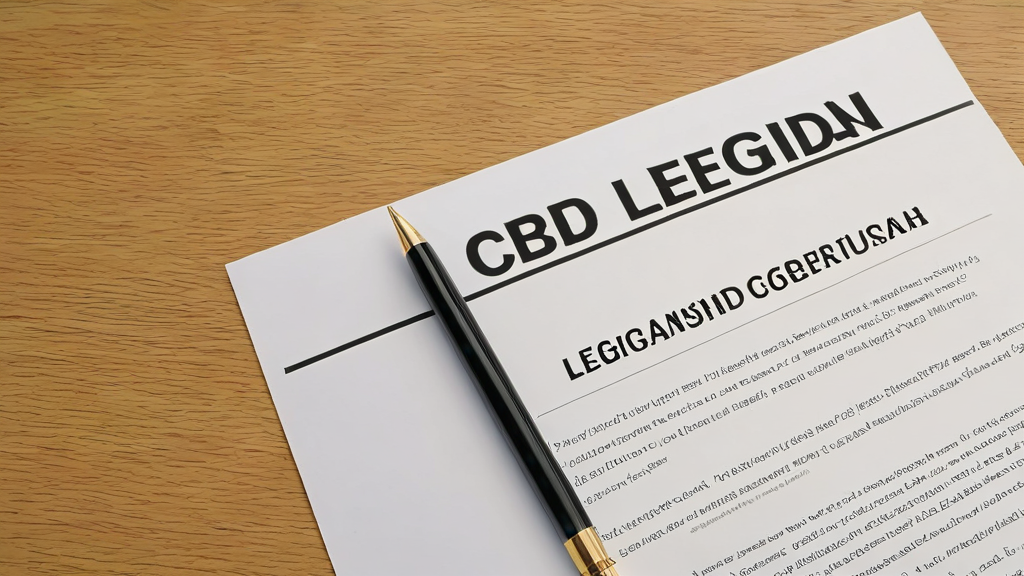What is CBD?
CBD, short for cannabidiol, is one of many chemicals found in the cannabis plant. Unlike its counterpart THC, CBD does not produce psychoactive effects, meaning it does not produce the “high” sensation associated with marijuana use. However, CBD has gained popularity in recent years due to its alleged health benefits. CBD is believed to have therapeutic properties that can help with a wide range of health problems, such as pain, inflammation, anxiety, and insomnia. Many people use it as a natural alternative to traditional medications, avoiding possible unwanted side effects.
Current legislation in Spain
In Spain, current legislation is a key issue within the legal field. Like any other country, Spain has a regulatory framework that regulates various areas and aspects of society. From the civil to the criminal, through labor and fiscal, the legislation establishes the rules that govern our coexistence. In the civil sphere, legislation is responsible for regulating aspects such as contracts, the rights and obligations of citizens, marriage and divorce, among others. It is important to highlight that Spanish civil legislation is governed by the Civil Code, which establishes the basic principles that regulate legal relationships between people. Regarding the criminal field, the legislation establishes the crimes and corresponding penalties. The Spanish Penal Code regulates different crimes, establishing the behaviors that are considered illegal and the sanctions that are imposed in each case. In the workplace, legislation regulates relations between employers and workers, establishing the rights and duties of both parties. Among other things, this legislation is responsible for regulating working hours, minimum wages, working conditions and workers’ rights in general.
Regulations for its sale and consumption
In the context of the sale and consumption of products, it is essential to have clear regulations that guarantee the safety and protection of both producers and consumers. Regarding the industry of regulated products, such as food, medicines and cosmetics, there are specific regulations that determine the necessary requirements for their sale and consumption. First, regulations typically establish quality and safety standards that these products must meet. This implies that manufacturers must follow rigorous production processes, using approved ingredients or materials and avoiding the incorporation of dangerous substances. In addition, it is necessary that products undergo laboratory tests that verify their compliance with established standards. Likewise, regulations also often establish specific requirements for product labeling. This implies that containers must contain clear and complete information about their contents, instructions for use, precautions and relevant warnings. This way, consumers can make informed decisions and avoid potential risks to their health. In relation to sales, regulations usually establish the conditions and requirements that points of sale, such as pharmacies, supermarkets or specialized stores, must meet. For example, it is common to require obtaining licenses or permits for marketing, as well as compliance with specific storage, handling and distribution requirements.
What does the jurisprudence say?
Jurisprudence is a fundamental element within the legal system, since it is a set of judicial decisions that establish and clarify the meaning and scope of laws. In relation to the topic in question, it is important to analyze what jurisprudence has said on the matter. Jurisprudence recognizes the importance of complying with laws and regulations at all times. In this sense, it has established that failure to comply with the rules can lead to legal consequences and corresponding sanctions. It is therefore vital that companies and individuals stay informed and act in accordance with legal provisions at all times. In addition, jurisprudence has also made it clear that the interpretation of laws is a task that must be carried out by the courts of law. This implies that, in case of doubt or disagreement about the application of a particular law, it is necessary to go to court to obtain an authoritative and binding interpretation. Another relevant aspect that stands out in jurisprudence is individual and collective responsibility in compliance with the laws. This implies that both individuals and companies have the obligation to know and comply with the established regulations, and that ignorance of the law does not exempt them from responsibility. Furthermore, jurisprudence has indicated that companies can be held responsible for the actions of their employees, which is why it is necessary to establish control and supervision mechanisms to guarantee regulatory compliance.
Future of CBD legality in Spain
The future of CBD legality in Spain is a topic that is generating growing interest and debate in the country. As more people discover the health benefits of Cannabidiol (CBD), questions are being raised about its legal status and regulation. Currently, in Spain CBD is considered a legal product as long as it meets certain requirements. CBD products must contain less than 0.2% THC, the psychoactive component of cannabis, to be legally marketed. However, there is some ambiguity regarding the interpretation and application of these rules, which has led to some uncertainty in the market. In recent years, there has been an increase in demand for CBD products in Spain, prompting authorities to review and update existing regulations. It is expected that clearer and more specific measures will be implemented in the near future to ensure the quality and safety of CBD products, as well as to regulate their trade and use. It is important to note that CBD has no psychoactive properties and has been shown to have various therapeutic applications. As stronger regulation develops and scientific research on CBD expands, it may make way for its use in the medical and pharmaceutical fields in a broader and more accessible way for consumers.
